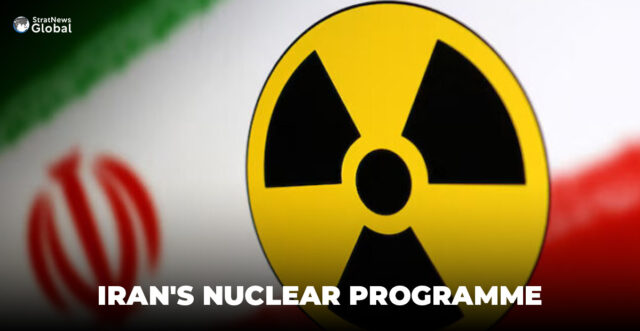In a collective appeal for peace, foreign ministers from the Group of Seven (G7) nations on Monday expressed support for the ceasefire between Israel and Iran, and called for the resumption of talks aimed at resolving concerns over Iran’s nuclear programme, according to a joint statement.
Since April, Iran and the US have held talks aimed at finding a new diplomatic solution regarding Iran’s nuclear programme. Tehran says its programme is peaceful and Israel and its allies say they want to ensure Iran cannot build a nuclear weapon.
“We call for the resumption of negotiations, resulting in a comprehensive, verifiable and durable agreement that addresses Iran’s nuclear programme,” the G7 foreign ministers said.
US-Brokered Ceasefire
Last week, Trump announced a ceasefire between US ally Israel and its regional rival Iran to halt a war that began on June 13 when Israel attacked Iran. The Israel-Iran conflict had raised alarms in a region already on edge since the start of Israel’s war in Gaza in October 2023.
Before the ceasefire was announced, Washington struck Iran’s nuclear sites and Iran targeted a US base in Qatar in retaliation.
The G7 foreign ministers said they urged “all parties to avoid actions that could further destabilise the region”.
‘Promising’ Talks
US Middle East Envoy Steve Witkoff has said talks between Washington and Tehran were “promising” and that Washington was hopeful for a long-term peace deal.
The G7 top diplomats denounced threats against the head of the UN nuclear watchdog on Monday, after a hardline Iranian newspaper said IAEA boss Rafael Grossi should be tried and executed as an Israeli agent.
‘No Credible Indication’
On June 12, the UN nuclear watchdog’s 35-nation Board of Governors declared Iran in breach of its non-proliferation obligations for the first time in almost 20 years.
Israel is the only Middle Eastern country believed to have nuclear weapons and said its war against Iran aimed to prevent Tehran from developing its own nuclear weapons.
Iran is a party to the Nuclear Non-Proliferation Treaty, while Israel is not. The UN nuclear watchdog, which carries out inspections in Iran, says it has “no credible indication” of an active, coordinated weapons programme in Iran.
(With inputs from Reuters)





